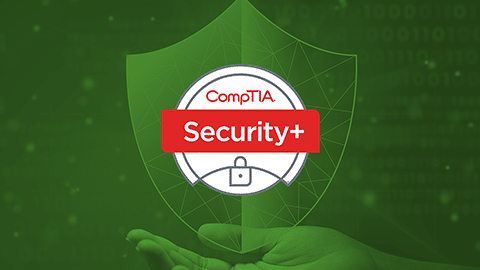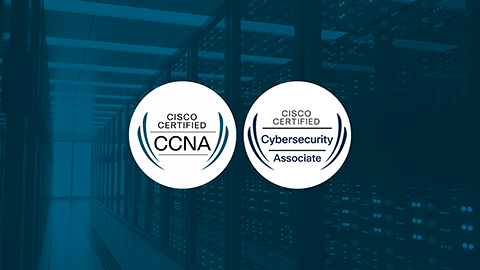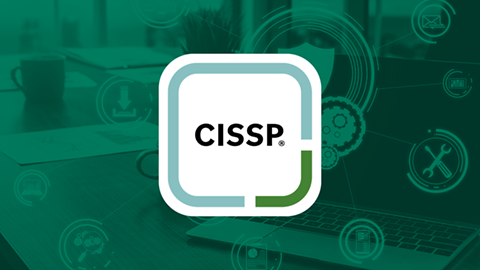
Cisco Cybersecurity Associate Training Boot Camp
With the rise of data and security breaches in organizations ranging from retail to government operations, the need for a robust cybersecurity team has never been greater. Infosec’s Cisco Certified Cybersecurity Associate (formerly CyberOps Associate) Training Boot Camp can help launch your information security career. The Cisco Certified Cybersecurity Associate provides essential skills, and accreditation enhances any professional career as a cybersecurity analyst.

What you'll learn
Training overview
This comprehensive training boot camp equips you with the knowledge and skills necessary to enter the field of cybersecurity operations. By completing this course, you will:
- Become adept in security monitoring: Learn various techniques and tools to monitor security events and incidents and detect and respond to potential threats in real-time.
- Excel in network intrusion analysis: Learn to analyze network traffic, detect and investigate network-based attacks and identify indicators of compromise to protect organizational networks from cyber threats.
- Understand security policies and procedures: Gain insights into security management concepts, incident response planning, risk assessment and compliance requirements to effectively contribute to an organization’s security posture.
What's included
Everything you need to know

- 90-day extended access to Boot Camp components, including class recordings
- 100% Satisfaction Guarantee
- Exam Pass Guarantee
- Exam voucher
- Free 90-day Infosec Skills subscription (access to 1,400+ additional courses and labs)
- Hands-on cyber ranges and labs
- Knowledge Transfer Guarantee
- Onsite proctoring of exam
- Unlimited practice exam attempts
Syllabus
Training schedule
Day 1
Security concepts
- Describe the CIA triad
- Compare security deployments
- Describe security terms
- Compare security concepts
- Describe the principles of the defense-in-depth strategy
- Compare access control models
- Describe terms as defined in CVSS
- Identify the challenges of data visibility (network, host, and cloud) in detection
- Identify potential data loss from provided traffic profiles
- Interpret the 5-tuple approach to isolate a compromised host in a grouped set of logs
- Compare rule-based detection vs. behavioral and statistical detection
Security monitoring & threat detection
- Compare attack surface and vulnerability
- Identify the types of data provided by these technologies
- Describe the impact of these technologies on data visibility
- Describe the uses of these data types in security monitoring
- Describe network attacks, such as protocol-based, denial of service, distributed denial of service and man-in-the-middle
- Describe web application attacks, such as SQL injection, command injections and crosssite scripting
- Describe social engineering attacks
- Describe endpoint-based attacks, such as buffer overflows, command and control (C2), malware and ransomware
- Describe evasion and obfuscation techniques, such as tunneling, encryption and proxies
- Describe the impact of certificates on security (includes PKI, public/private crossing the network, asymmetric/symmetric)
- Identify the certificate components in a given scenario
- Cipher-suite
Security monitoring continued
Host-based analysis
- Describe the functionality of these endpoint technologies in regard to security monitoring
- Identify components of an operating system (such as Windows and Linux) in a given scenario
- Describe the role of attribution in an investigation
- Identify type of evidence used based on provided logs
- Compare tampered and untampered disk image
- Interpret operating system, application, or command line logs to identify an event
- Interpret the output report of a malware analysis tool (such as a detonation chamber or sandbox)
Optional group & individual study
Schedule may vary from class to class
Day 2
Network intrusion analysis
- Map the provided events to source technologies
- Compare impact and no impact for these items
- Compare deep packet inspection with packet filtering and stateful firewall operation
- Compare inline traffic interrogation and taps or traffic monitoring
- Compare the characteristics of data obtained from taps or traffic monitoring and transactional data (NetFlow) in the analysis of network traffic
- Extract files from a TCP stream when given a PCAP file and Wireshark
- Identify key elements in an intrusion from a given PCAP file
- Interpret the fields in protocol headers as related to intrusion analysis
- Interpret common artifact elements from an event to identify an alert
- Interpret basic regular expressions
Security policies and procedures
- Describe management concepts
- Describe the elements in an incident response plan as stated in NIST.SP800-61
- Apply the incident handling process (such as NIST.SP800-61) to an event
- Map elements to these steps of analysis based on the NIST.SP800-61
- Map the organization stakeholders against the NIST IR categories (CMMC, NIST.SP800-61)
- Describe concepts as documented in NIST.SP800-86
- Identify these elements used for network profiling
- Identify these elements used for server profiling
- Identify protected data in a network
- Classify intrusion events into categories as defined by security models, such as Cyber Kill Chain Model and Diamond Model of Intrusion
- Describe the relationship of SOC metrics to scope analysis (time to detect, time to contain, time to respond, time to control)
Exam prep
Take 200-201 exam
What makes the Infosec Cisco Certified Cybersecurity Associate prep course different?
You can rest assured that the Cisco Certified Cybersecurity Associate training materials are fully updated and synced with the latest version of the exam. In addition, you’ll gain access to a CCNA prep course the moment you enroll, so you can prepare for and get the most out of your boot camp.
With 20 years of training experience, we stand by our Cisco Certified Cybersecurity Associate training with an Exam Pass Guarantee. This means if you don’t pass the exam on the first attempt, we’ll pay for your second exam at no additional cost to you!
Infosec success stories

"The team at Infosec was great from the start, and they were as excited about my journey as I was. They explained the value behind each training I was considering and how it could further my goals. Their enthusiasm was a great motivation throughout the boot camp."
Elle Autumn
EC-Council Certified Ethical Hacking Course: CEH Certification Training Boot Camp Read Elle's Story
"Infosec has uniquely prepared me for any CMMC retraining that will take place inevitably in the future. With them, it’s not just about completing the certification; it's about being a true contributor to the ecosystem."
James Ahern
Certified CMMC Assessor (CCA) Boot Camp Read James's Story
"The hands-on training was the best part. You have an instructor you can actually reach out to and ask questions — not only on the material, but also about things out in the wild with cybersecurity."
Eddie Quinones
CompTIA Security+ Certification Training Boot Camp Read Eddie's Story
"The Infosec CISM Boot Camp gave me the ability to intelligently explain why I'm making a decision. Ultimately, the C-suite is happy and they know, 'Hey, here's a person that we can rely on."
Mohammad Mirza
ISACA Certified Information Security Manager (CISM) Training Boot Camp Read Mohammad's StoryGuaranteed results
Our Boot Camp guarantees

Exam Pass Guarantee
If you don’t pass your exam on the first attempt, get a second attempt for free. Includes the ability to re-sit the course for free for up to one year (does not apply to CMMC-AB Boot Camps).

100% Satisfaction Guarantee
If you’re not 100% satisfied with your training at the end of the first day, you may withdraw and enroll in a different online or in-person course.

Knowledge Transfer Guarantee
If an employee leaves within three months of obtaining certification, Infosec will train a different employee at the same organization tuition-free for up to one year.
Who should attend

The Cisco Certified Cybersecurity Associate Training Boot Camp is tailored for individuals seeking a career in cybersecurity operations. This comprehensive boot camp is beneficial for professionals in various roles, including:
- Associate-level cybersecurity analysts
- Network engineers and administrators
- Systems administrators and system engineers
- IT managers and directors
- Anyone interested in a career in cybersecurity
By completing the Cisco Certified Cybersecurity Associate certification, you demonstrate your proficiency in cybersecurity operations and highlight your commitment to ensuring the security of digital systems and networks. This certification can significantly enhance your career prospects and make you invaluable to organizations seeking skilled cybersecurity professionals.
Before your Boot Camp
Prerequisites
What's next?
After you finish the Cisco Certified Cybersecurity Associate Boot Camp

After completing the Cisco Certified Cybersecurity Associate Boot Camp, you’re on your way to being a Cisco Certified Cybersecurity Associate. Here’s where the next stage of the journey leads:
Guaranteed results
Infosec is committed to your success. Our Cisco Cybersecurity training prepares you for the Cisco Certified Cybersecurity Associate exam, and we stand by our training with an Exam Pass Guarantee. If you don’t pass your exam on the first attempt, you’ll get a second attempt for free.
Continued learning and professional development
When you complete your Cisco Certified Cybersecurity Associate Boot Camp, you’ll have 90 days of access to an extensive library of courses and labs in Infosec Skills. This includes additional training on network security, network operations and a wide variety of other domains.
Career Opportunities
What are the career opportunities like for Cisco Cybersecurity Associate certified professionals?
With instances of cyberattacks on the rise and increased internal incidents in almost every industry, it’s no surprise holders of this certification can work in many SOC positions throughout their careers. Below is a list of job roles that you can hold with a Cisco Cybersecurity Associate certification:
- Senior network engineer
- Information security supervisor
- Information security analyst
- Cybersecurity specialist
Responsibilities and job titles associated with Cisco Cybersecurity Associate training and certification vary depending on organization size, industry and your specific role within IT and cybersecurity.
What job titles are most common for people with Cisco's Cybersecurity Associate certification?
Some common positions that this certification can help you land include:
-

Network administrator
-

Network security engineer
-

Cybersecurity analyst
-

IT manager
FAQ
Frequently asked questions
What is the difference between CCNA Cyber Ops, Cisco CyberOps, and Cisco Certified Cybersecurity Associates?
All three refer to the same certification. The names “CCNA Cyber Ops” and "Cisco CyberOps" were previously used for this certification but has been updated and renamed “Cisco Certified Cybersecurity Associate.” The content and objectives of the certification remain similar.
Is it hard to pass Cisco Certified Cybersecurity Associate exam?
The difficulty level of any certification exam can vary depending on individual skills, experience and preparation. The Cisco Certified Cybersecurity Associate exam tests your knowledge and skills in cybersecurity operations. With dedicated preparation, including studying the exam objectives, practicing with relevant resources and gaining hands-on experience, you increase your chances of passing the exam successfully. Our boot camp contains all the information needed to pass the exam on your first try.
How is Cisco certification going to give a boost to my career?
Earning your Cisco Cybersecurity Associate certification gives you a significant boost to your IT career, particularly in the field of network security. Cisco certifications validate your expertise and demonstrate your commitment to professional development. They enhance your knowledge and skills, making you a preferred candidate for job promotions and new opportunities.
Cisco certifications are globally recognized and respected, opening doors to career advancement prospects and potential salary increases. They also increase your employability and make you stand out among other candidates. Cisco certifications also ensure continuous learning and growth by keeping you updated with industry trends and technologies. Overall, Cisco certification shows you are a competent professional in the cybersecurity domain.
Average Salary
Cisco Certified Cybersecurity Associate certification salary expectations
Cisco Certified Cybersecurity Associate professionals are in high demand, and their expertise is rewarded with competitive salaries. The exact salary range can vary depending on your experience level, geographical location and the industry you work in. On average, Cisco Certified Cybersecurity Associates can earn upwards of $87,778 annually.
Read our Cybersecurity Associate salary article for more information.
Award-winning training you can trust




Available scheduled dates
This in-person offering is not available for self-paying students and enrollments must be funded by employers and government entities only.
This in-person offering is not available for self-paying students and enrollments must be funded by employers and government entities only.
Meets 8570.1 requirements
Attention DoD Information Assurance workers! This boot camp helps meet U.S. Department of Defense Directive 8570.1 requirements for department employees or contractors engaged in work related to information security.
Why choose Infosec?
Category
Infosec logo
SANS Institute
Training Camp
Global Knowledge (Skillsoft)
AI-powered, hands-on skill validation
12 Roles
Integrated for all roles
90 days
*Protects your investment if trained employees leave within three months of obtaining certification (Infosec will train a different employee at the same organization tuition-free for up to one year).
Explore our top boot camps






